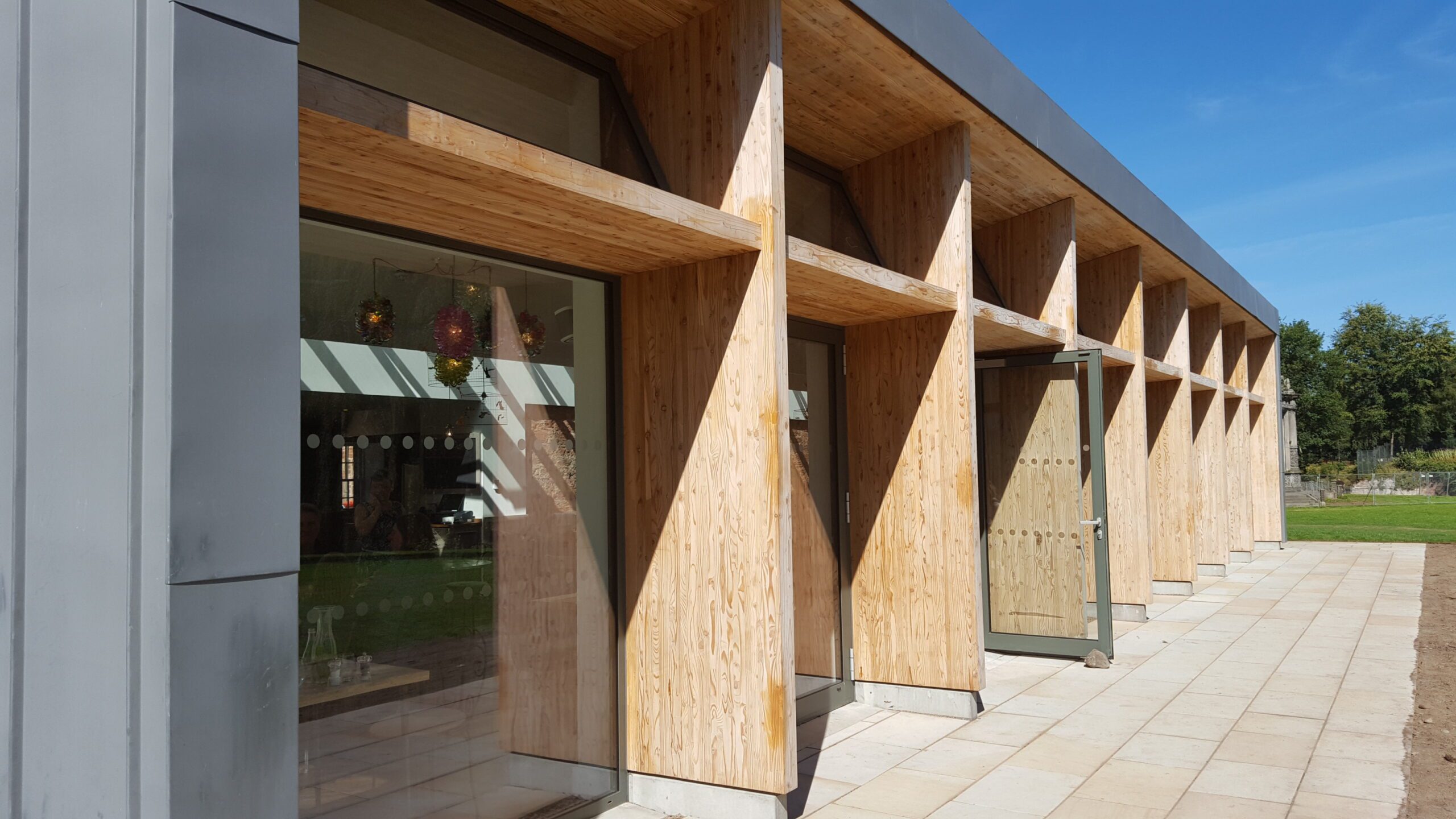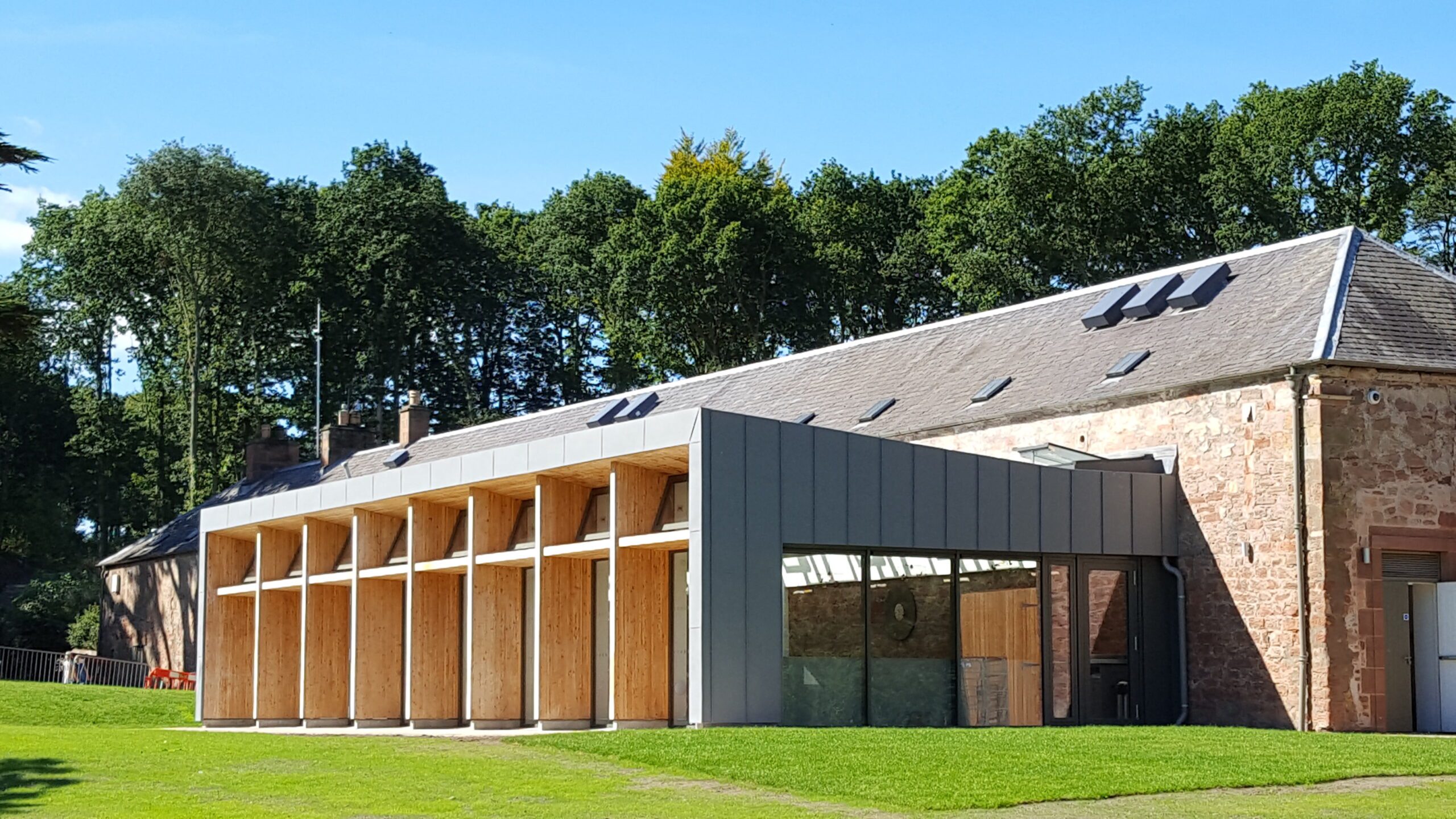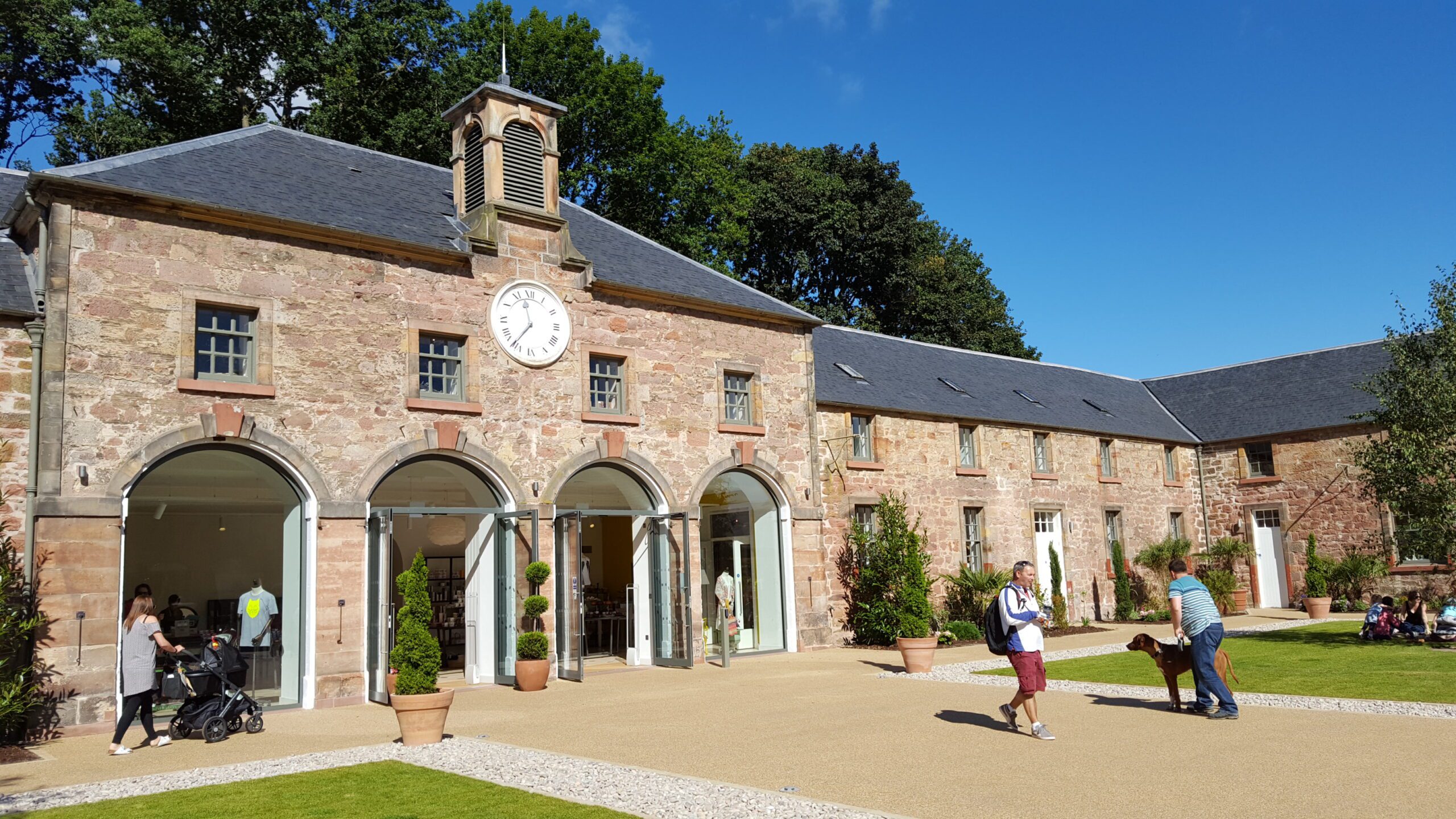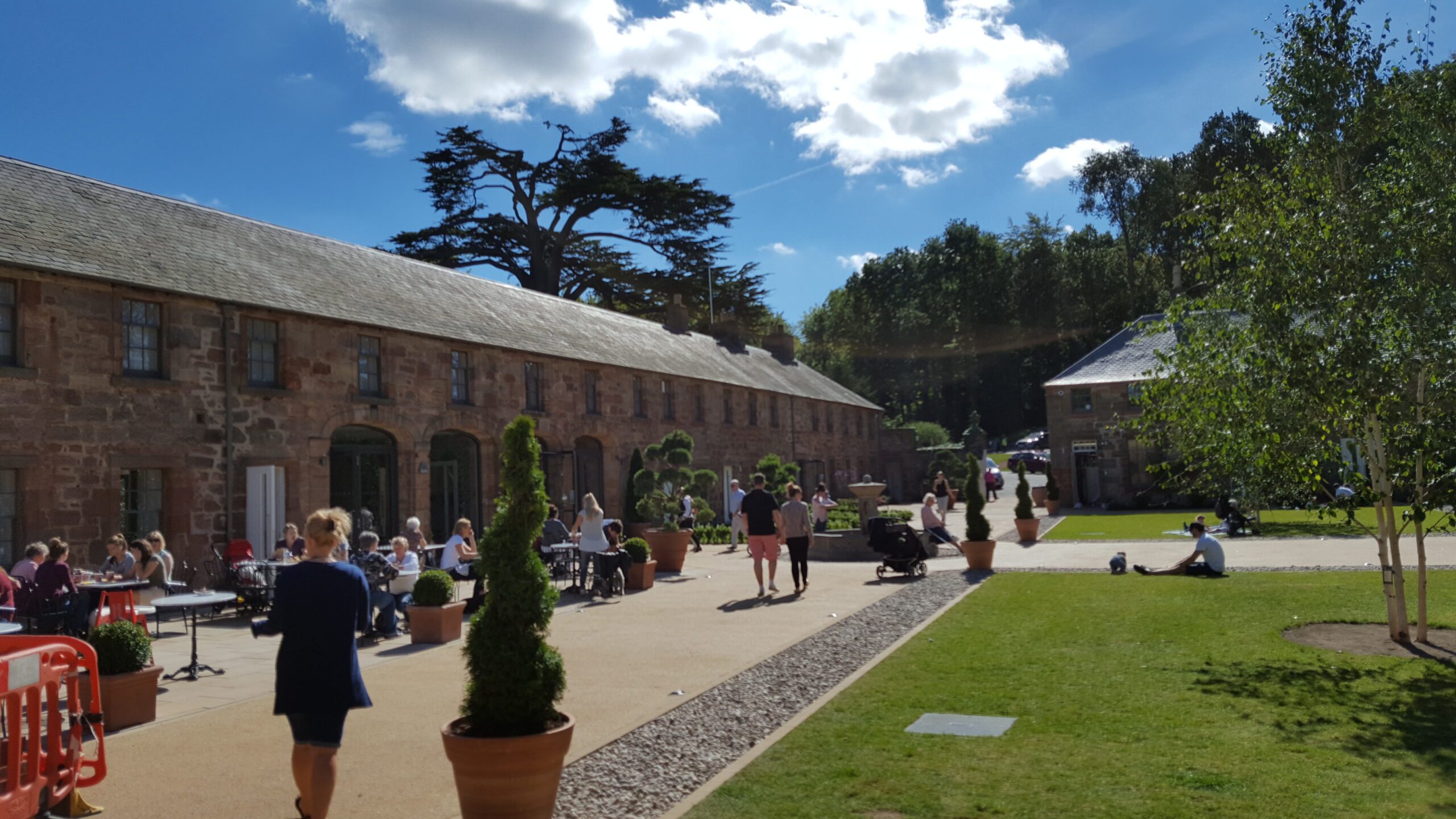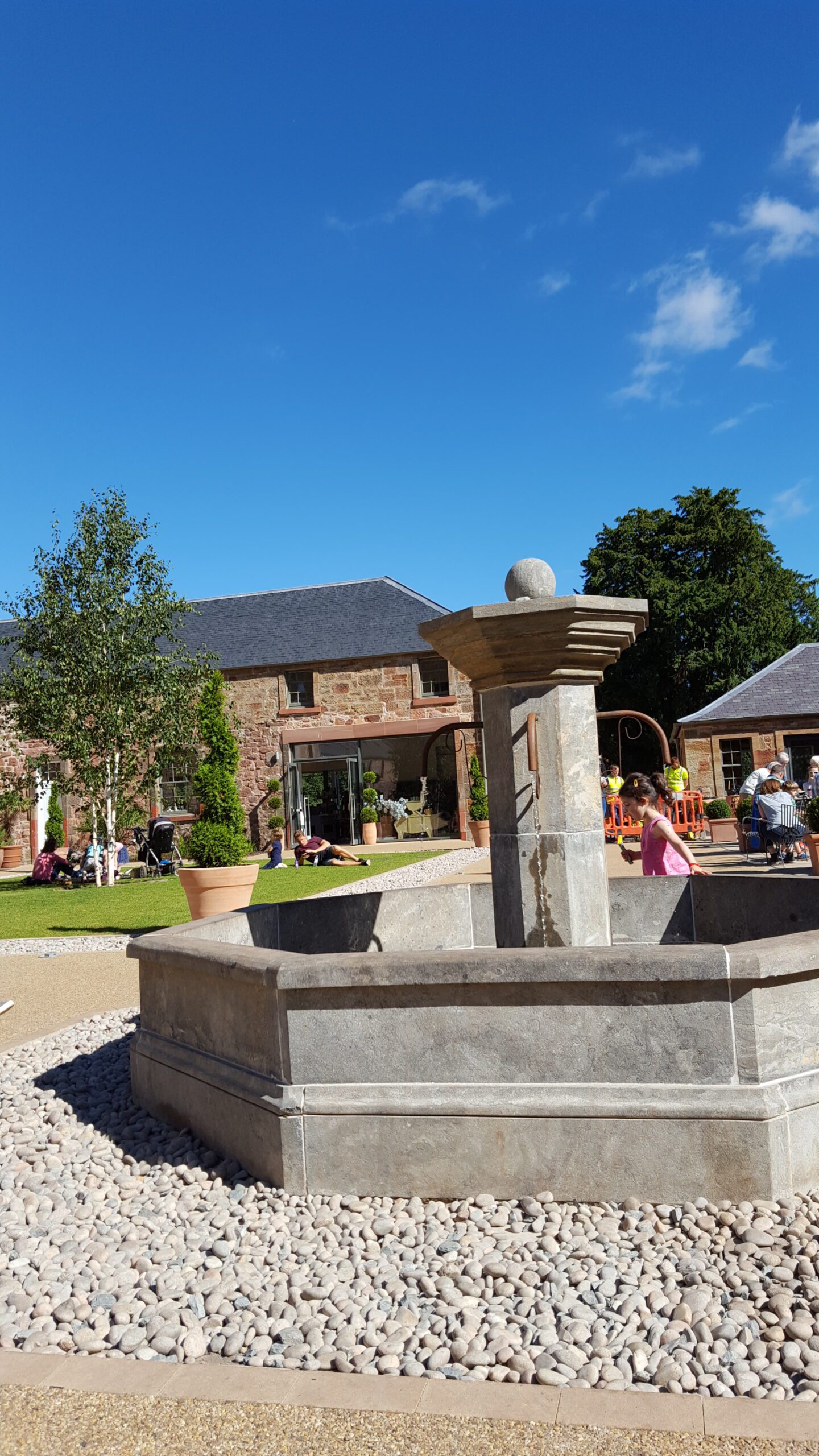Dalkeith Stables
Awards:
Edinburgh Architectural Association Awards (EAA) 2017: Regeneration and Conservation – Winner
RICS Awards 2017: Building Conservation – Winner
RICS Awards 2017: Building of the Year – Shortlisted
RICS Awards 2017: Tourism & Leisure – Highly Commended
Scottish Property Awards 2018: Architectural Excellence (Commercial Use)
Client: Buccleuch Estates
Architect: Malcolm Fraser Architects
Contractor: Taylor and Fraser
Completed: 2016
Value: £3.85m
Status: Completed
Photographer: Narro
Home / Dalkeith Stables
Project overview
Development of an underused existing stables building and the surrounding area within Dalkeith Country Park, Midlothian.
The Country Park is the estate of Dalkeith Palace, a stately home built in 1702 and the former seat of the Duke of Buccleuch. The estate is a much admired visitor attraction and the aim of the development was to encourage more people to visit and make better use of the beautiful setting.
We were appointed by Buccleuch Recreational Enterprises Ltd (BRE) to carry out the Structural and Civil Engineering design for a development proposal at the existing stables at Dalkeith Estate. The stables were made a focal point for visitors to the estate, and the adjacent buildings and landscape were integrated into a more coherent and unified whole. The new visitor ‘hub’ has a mix of retail, catering and event space within the setting of a fully restored listed building.
The Stables and Coach House are Category A listed buildings. The stables comprise of two two-storey opposing ranges, enclosing a rectangular courtyard. The stables are neighboured by the Laundry house and both buildings overlook the impressive orangery. This project enhanced an existing largely inefficient space and increased its environmental performance standards.
The stables included the construction of two extensions using natural materials to compliment the aesthetic of the stable building and its setting. The glazed wall that sits behind the timber structure enhances views to the river and allows customers to use the external terrace and lawn. The sides of the extension also have large glazed openings, which frame the view of the orangery to the north and provide views of the new bridge immediately to the south. No visible fixings were part of the specification to the glulam fins, so the most cost-effective way of providing stability to the extensions was to introduce a hidden steel frame behind the timber.
A steel frame structure was chosen because it allowed a high level of offsite fabrication and could be detailed to remove the need for hot works on site. The universal beam sections supporting the timber joists were reduced to thin plate sections over the width of the roof lights, emphasising the Architect’s aesthetic intent.
The Stable Yard site, and the wider estate, is close to Dalkeith High Street and its associated transport networks and public transport links to Edinburgh. The proposals improved vehicular access within the site and also created attractive pedestrian connections throughout the development. Where possible any by-products from the works were reused within the estate or recycled by the contractor.
Services
Services provided
Loading...
Sectors
Loading...
Dedicated team
Projects
